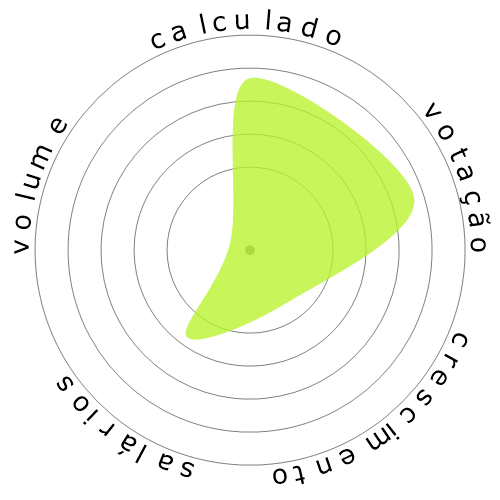Diretores Musicais e Compositores




As pessoas também visualizaram
Risco de automação calculado
Risco Baixo (21-40%): Trabalhos neste nível têm um risco limitado de automação, pois exigem uma mistura de habilidades técnicas e centradas no ser humano.
Mais informações sobre o que é essa pontuação e como ela é calculada estão disponíveis aqui.
Enquete do usuário
Nossos visitantes votaram que há uma baixa chance de esta ocupação ser automatizada. Esta avaliação é ainda mais apoiada pelo nível de risco de automação calculado, que estima 21% de chance de automação.
O que você acha que é o risco da automação?
Qual é a probabilidade de que Diretores Musicais e Compositores seja substituído por robôs ou inteligência artificial nos próximos 20 anos?
Sentimento
O gráfico a seguir é incluído sempre que há uma quantidade substancial de votos para gerar dados significativos. Essas representações visuais mostram os resultados das enquetes dos usuários ao longo do tempo, fornecendo uma indicação importante das tendências de sentimento.
Sentimento ao longo do tempo (anualmente)
Crescimento
Espera-se que o número de vagas de emprego para 'Music Directors and Composers' aumente 2,7% até 2033
Emprego total e estimativa de vagas de emprego
As projeções atualizadas são devidas 09-2025.
Salários
Em 2023, o salário anual mediano para 'Music Directors and Composers' foi de $ 62.590, ou $ 30 por hora
'Music Directors and Composers' receberam 30,2% a mais do que o salário médio nacional, que era de $ 48.060
Salários ao longo do tempo
Volume
A partir de 2023 havia 10.770 pessoas empregadas como 'Music Directors and Composers' dentro dos Estados Unidos.
Isso representa cerca de < 0,001% da força de trabalho empregada em todo o país
Dito de outra maneira, cerca de 1 em 14 mil pessoas são empregadas como 'Music Directors and Composers'.
Descrição do trabalho
Conduza, dirija, planeje e lidere performances instrumentais ou vocais de artistas musicais ou grupos, como orquestras, bandas, corais e clubes de alegria; ou crie obras originais de música.
SOC Code: 27-2041.00


Comentários
Leave a comment
This is without taking into account all of the interpersonal elements of composition, which are also not well understood by people who don't do this work.
Finally, given that humans are subject to copyright law and that the level of imitation and inspiration from previous works is controlled and limited by these laws, it is unlikely that music created by AI that was not drastically reshaped by a human composer would avoid copyright lawsuits or be subject to copyright itself, as current technology in this field only knows how to aggregate and make stylistic choices based on probability. A human composer is not going to waste time fiddling with AI compositions to "get them there" when they could just write something themselves.
Show me an evangelist who actually produces music and isn't heavily invested in AI themselves in some way, and I'll reconsider.
bye bye dutse, hesh and koot
1. Which is understanding which part of what they created did a human like and thus may have trouble using reinforced learning.
2. Lyrics have meaning behind the words. Its much more complex than just a melody. Its these lyrics and building melody in combination with lyrics which is going to be rather difficult but not impossible. Lyric writing is going to be one of the Last things AI will be able to do.
https://www.youtube.com/watch?v=wYb3Wimn01s
Deixe uma resposta sobre esta ocupação